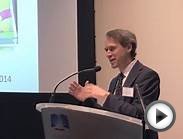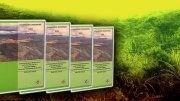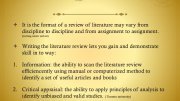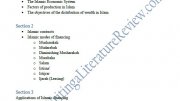 World literature has become a subject of lively – sometimes heated – debate in recent years, both as a body of texts and as “a problem, ” as Franco Moretti remarked in his influential pair of conjectural articles (Moretti 2000, 2003). Much of the discussion since then has focused on issues of scale and the challenges of incorporating a meaningful range of the world’s literatures in our work, whether when teaching a sophomore-level survey course or in mapping the global spread of the novel. The perspective on world literature as a vast landscape stretching out into the far distance has been widely shared both by those who praise the expansion to a planetary scale as offering a way to move beyond Eurocentrism and all sorts of regional parochialism, and by those who criticize literary globalists (planiterati?) for cultural imperialism or for sacrificing the linguistic rigor and cultural depth traditionally emphasized by more circumscribed comparative literary studies.
World literature has become a subject of lively – sometimes heated – debate in recent years, both as a body of texts and as “a problem, ” as Franco Moretti remarked in his influential pair of conjectural articles (Moretti 2000, 2003). Much of the discussion since then has focused on issues of scale and the challenges of incorporating a meaningful range of the world’s literatures in our work, whether when teaching a sophomore-level survey course or in mapping the global spread of the novel. The perspective on world literature as a vast landscape stretching out into the far distance has been widely shared both by those who praise the expansion to a planetary scale as offering a way to move beyond Eurocentrism and all sorts of regional parochialism, and by those who criticize literary globalists (planiterati?) for cultural imperialism or for sacrificing the linguistic rigor and cultural depth traditionally emphasized by more circumscribed comparative literary studies.
Certainly there have been good reasons for the global approaches to world literature pursued by various of us during the past decade, as well as principled grounds for disputing those approaches. But world literature is almost always experienced by readers within the national context in which they live, and more particularly within the national market in which books are published, reviewed, and assigned in classes. In this respect, we can find a figure/ground reversal, whereby it is the nation that frames most concrete experiences of world literature, at least as much as it is world literature that frames any national canon. My personal hope for the coming decade is that we will look more deeply into the presence of the world within the nation, even as we continue to develop further our exploration of national traditions within the wider world.
Source: stateofthediscipline.acla.org
|
The Story of the World: History for the Classical Child: The Middle Ages: From the Fall of Rome to the Rise of the Renaissance (Second Revised Edition) (Vol. 2) (Story of the World) Book (Peace Hill Press) |
You might also like:

Related posts:
- World Literature for Children
- World Literature In Music
- WORLD literature flashcards
- World Literature videos


























This book was added to the syllabus of the intro world literature class I'm teaching this fall by one of the higher-ups, so I read it today so as to figure out what to do with it. To my surprise (I dunno why I'm so cynical, but I guess this should teach me a lesson), it's actually a really great book. Extremely useful, accessible, and even entertaining. It actually deserves to be required reading in any world literature class! Who woulda thunk, eh?